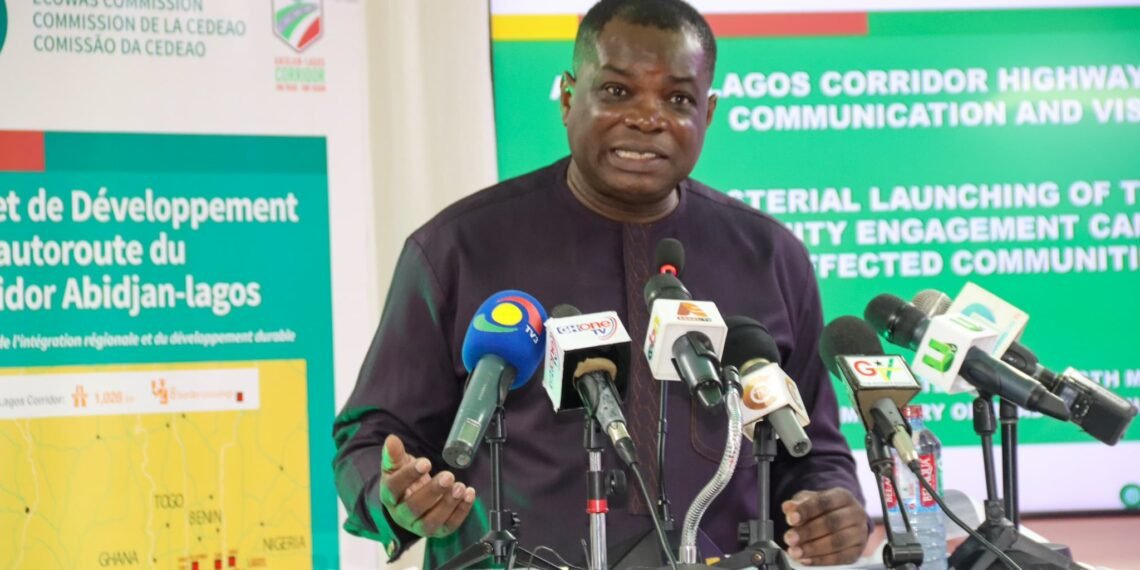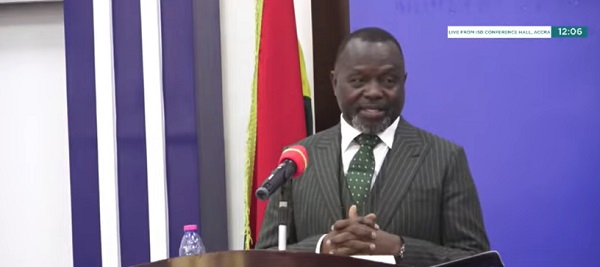Ghana’s Minister for Roads and Highways, Hon. Governs Kwame Agbodza, has reiterated the government’s unwavering commitment to the successful implementation of the Abidjan-Lagos Corridor Highway Project.
He stressed its significance for economic transformation, regional integration, and sustainable development across West Africa.
Speaking at a sensitisation forum on the transnational infrastructure initiative, the Minister called for heightened community engagement, transparency, and strategic investment to ensure that the project is not only completed but also embraced by citizens and future generations.
The Abidjan-Lagos Corridor Project, which dates back to 2013, seeks to link Côte d’Ivoire, Ghana, Togo, Benin, and Nigeria via a modern highway system.
The 1,028-kilometre road is envisioned to ease the movement of goods and people, increase trade volumes, and serve as a backbone for regional prosperity.
For Minister Agbodza, the time has come for Ghana and its neighbours to transform this long-standing vision into a tangible reality.
Reflecting on Ghana’s infrastructural landscape, Hon. Agbodza lamented the numerous instances where projects are initiated and completed but rendered redundant due to inadequate stakeholder engagement.
He cited the common sight of unutilized market stores across Ghanaian highways, which continue to be ignored by traders in favour of roadside vending.
“When the market stores were built or were being built, what was the engagement with the people who used to sell in that community? Were they briefed? Did they agree that the market stores should be built where they are? If so, why don’t they use it?”
Hon. Governs Kwame Agbodza, Ghana’s Minister of Roads and Highways
These cases, he noted, are emblematic of how public resources are often wasted due to a lack of consultation and alignment with community needs.
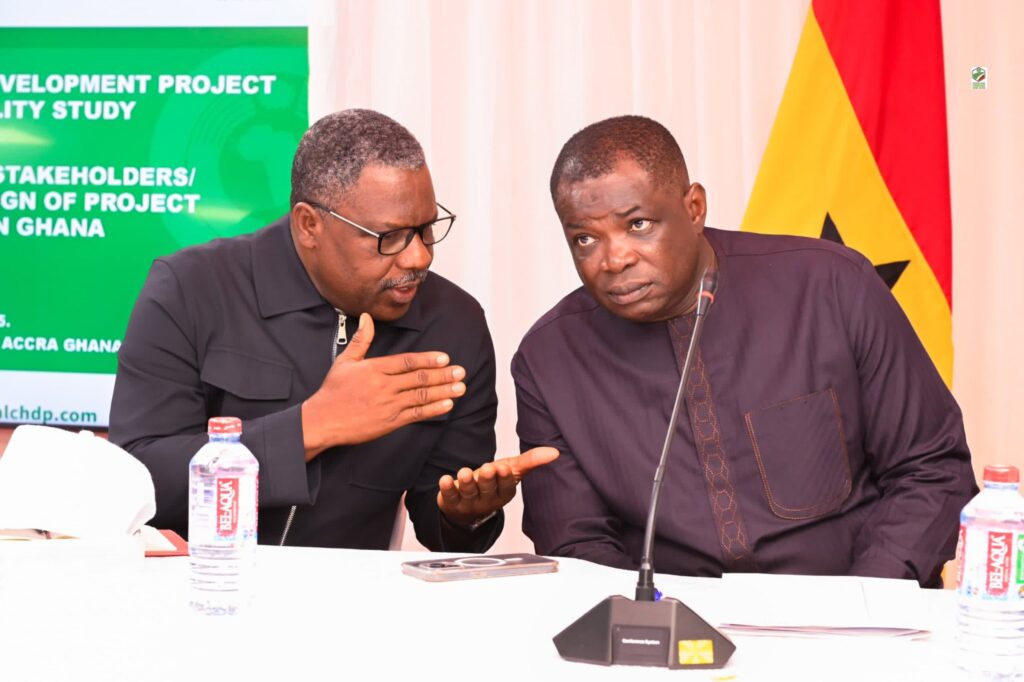
The Minister emphasised that this phase of the Abidjan-Lagos project is particularly crucial because it places people at the centre of the development process.
“I agree with the dream that one day you will go to Togo, you probably won’t need to carry a passport. One day, going to Nigeria wouldn’t feel like going to another country. Infrastructure is not just about roads and bridges. It is about connecting people, communities, and opportunities.”
Hon. Governs Kwame Agbodza, Ghana’s Minister of Roads and Highways
Charting Meaningful Dialogue
Hon. Agbodza insisted that for this cross-border initiative to succeed, it must be deeply rooted in meaningful dialogue, local participation, and a shared understanding of its benefits and implications.
He commended President John Dramani Mahama for his visionary leadership and support for the project, describing him as a key proponent of regional integration.
According to the Minister, President Mahama’s “Big Push” agenda aligns seamlessly with the aspirations of the Abidjan-Lagos Highway initiative.
The Big Push project aims to accelerate infrastructure development in Ghana, including major roads such as the Eastern, Western, and Upper Corridors, as well as bypasses to decongest urban centres like Accra.
Hon. Agbodza explained that strategic projects like the Abidjan-Lagos Corridor are fundamental to unlocking West Africa’s economic potential.
He highlighted how essential road transport is to the daily lives of millions across the region, from transporting goods such as yams and tomatoes to ensuring access to education and healthcare.
He said, “Few people may fly, a few may cruise on the sea, but the majority of us will have to use the ground, which is the road.”
Challenges Facing Roads Contsruction
However, the Minister also addressed a growing challenge facing infrastructure development in Ghana: the deliberate construction of buildings within designated project areas after information about upcoming developments becomes public.
He shared anecdotes of individuals laying foundations in undeveloped areas once they hear that a road is planned to pass through. These acts, he cautioned, not only disrupt project timelines but also complicate the compensation process.
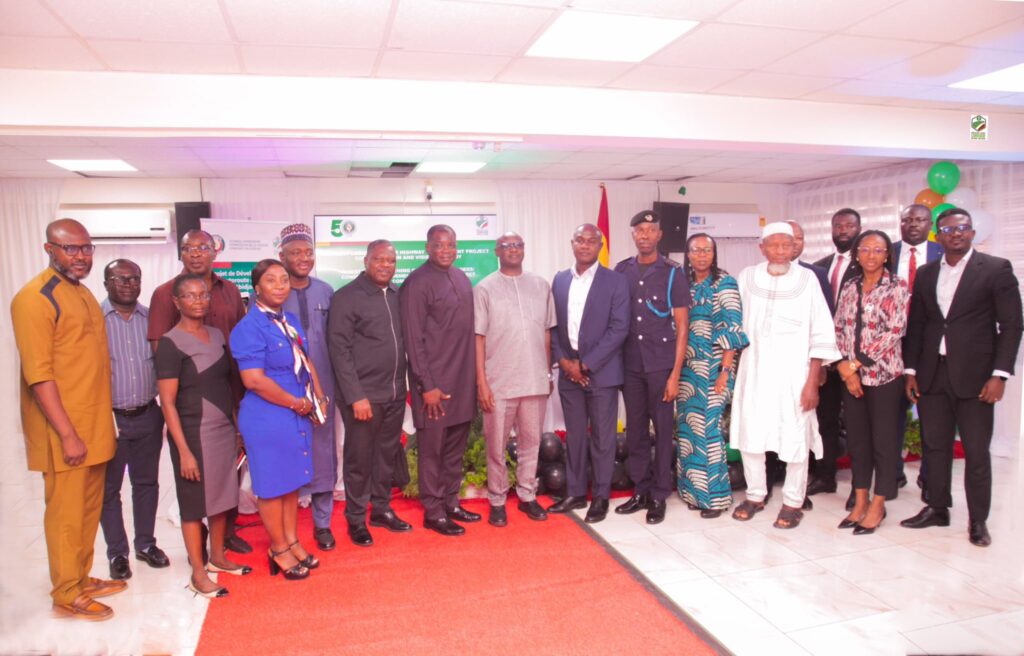
While the government is committed to compensating property owners fairly, Hon. Agbodza warned against opportunism and legal brinkmanship that delay progress.
“Some people reject legitimate valuations and resort to lengthy legal battles that impede the project and deprive us all”.
Hon. Governs Kwame Agbodza, Ghana’s Minister of Roads and Highways
He called for measured expectations and respect for legal procedures to ensure a smooth implementation process.
In a show of optimism, the Minister applauded the forward-looking design proposed by consultants, especially the integration of smart tolling systems.
Unlike outdated toll booths that obstruct traffic, the new system will allow for seamless toll collection through technology.
“Ghana will roll out a smart road tolling system before the end of this year, which ties in perfectly with what you are trying to do.”
Hon. Governs Kwame Agbodza, Ghana’s Minister of Roads and Highways
Project’s Financing
Hon. Agbodza also raised key questions about project financing. While acknowledging the financial constraints facing Ghana and other member states, he proposed that governments could consider pre-financing sections of the highway.
He urged ECOWAS to provide clarity on whether countries that undertake such investments would be reimbursed or credited under the broader regional financing arrangement.
His call for financial strategy was complemented by a broader appeal for political will and cross-border collaboration.
The Minister encouraged stakeholders not to become passive participants in yet another regional meeting but to seize this opportunity to bring the long-envisioned project to life.
“Let us be the generation that realises the dream of our forebears and gets this project done once and for all for our subcontinent”.
Hon. Governs Kwame Agbodza, Ghana’s Minister of Roads and Highways
Marking the 50th anniversary of the Economic Community of West African States (ECOWAS), Hon. Agbodza praised the regional bloc for its longstanding role in promoting peace, unity, and integration.
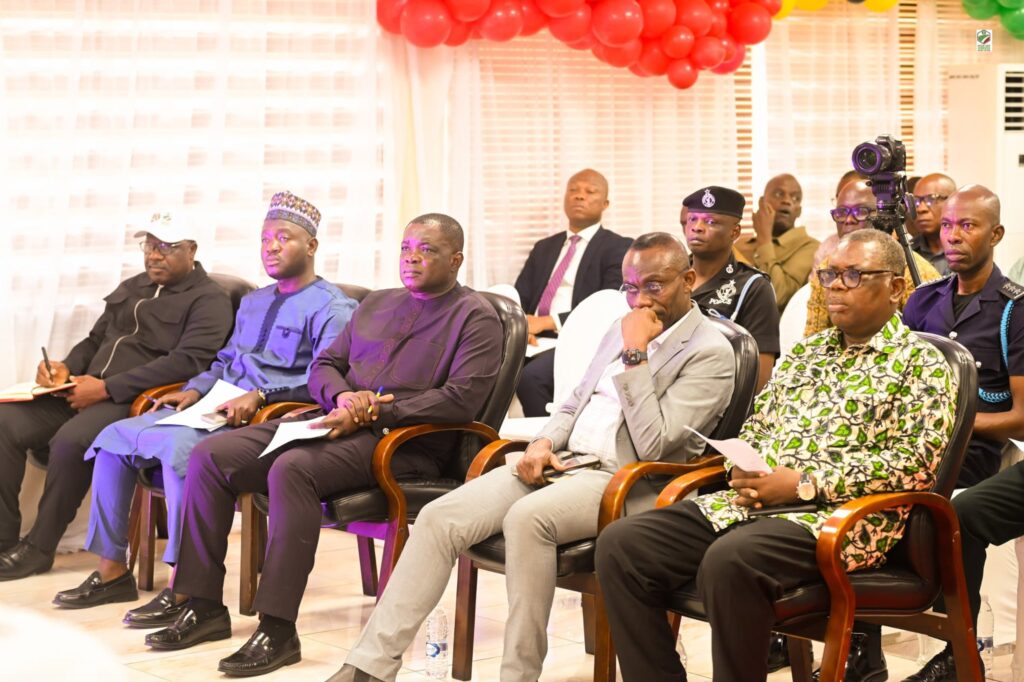
He described the Abidjan-Lagos Corridor Project as a symbol of ECOWAS’s enduring legacy and a testament to its commitment to collective development.
The Minister concluded his address by urging all facilitators of the sensitisation programme to listen carefully to community concerns.
“Each view and concern is very important,” he stressed, adding that the success of the project hinges not just on technical execution but on trust, inclusion, and shared purpose.
As Ghana positions itself to play a pivotal role in this transformative regional initiative, the Abidjan-Lagos Corridor Project stands as both a challenge and an opportunity.
A challenge to overcome entrenched inefficiencies and a golden opportunity to reshape West Africa’s infrastructure and integration narrative for generations to come.
READ ALSO: Ghana Aims for 100% Gas-Fired Thermal Power by 2029

